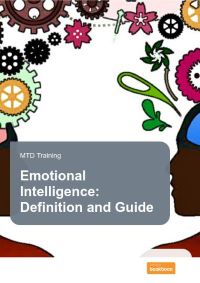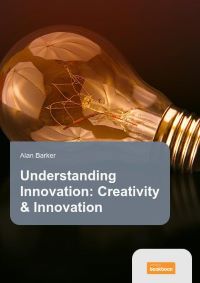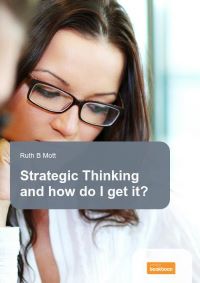How not to be replaced by a robot

‘The Robot Revolution’, ‘Computerisation’ or ‘Automation’; whatever you prefer to call it, technology isn’t going anywhere any time soon, but our jobs just might be.
Perhaps you have already noticed automation’s slow but sure transition into businesses and workplaces around the world and it will not stop at your local grocery store or fast food chain. By 2030, it is predicted that 30 percent of work activities currently performed by humans could be automated, affecting 375 million workers worldwide (1) and causing over 70% of workers to fear the challenging transitions ahead (2).
The skills to beat the bots
What is becoming increasingly apparent is that the technical skills taught at school will not be enough to prepare us for the challenges presented by our evolving digital economy and the Fourth Industrial Revolution. However, there is still hope. Because the jobs requiring skills such as high-speed data gathering and analysis will be performed by machines, there is an emerging need in both the workplaces of today and tomorrow for employees with strong soft skills who can perform well in the roles that robots cannot. Developing the very skills that make us human will be exactly what we need to future-proof our careers.
So, how can you ensure you won’t be replaced by a robot? By developing the soft skills artificial intelligence will not master in the next few decades.
Leadership skills
When you think of history’s greatest leaders, they all have a few things in common; they had a clear vision and purpose, were forward-thinking, communicated their goals in a way that inspired those who followed or worked for them and, finally, they were human. Although a robot may increase a workplace efficiency, it is great leadership that gives employees a purpose and the motivation to help an organisation reach new heights.
Brush up on your leadership skills with our free eBook Become the Leader you are.
Emotional intelligence
Our human emotions are often seen as a hindrance in the business world, but they are truly one of our greatest assets to securing a future of work. Many companies once largely focused on where new hires studied, have learned that technical skills and a degree alone don’t equate to a successful employee. The way an employee conducts them self, expresses them self, and interacts with others are becoming increasingly important when it comes to hiring. While we keep updating and improving AI to become more and more human-like, robots, as of yet, simply cannot experience, monitor and react to human emotion in the way we do.
Tap into the skills that make you human with our free eBook Emotional Intelligence.
Process optimisation
When it comes to optimising efficiency using advanced analysis or statistical methods to solve problems, our robotic counterparts may have us beat. But process optimisation is about more than just that. Statistical tools and analytical models such as Six Sigma are only as effective as the people who use them (3). Human beings, not tools or models, are the real difference between an optimised process and one that does not run smoothly.
Learn about this effective process optimisation method with our free eBook Six Sigma.
Coaching and motivating
Some of us may find another introduction to the workforce almost as unsettling as our future robotic coworkers. They are millennials and by 2025, they will make up roughly 75% of the workforce (4). These young workers respond to a different approach to management than the style that has been successful in the past, one that leads through motivation and mentoring (5). Not only can mentors use their experience to help their mentees navigate the brand-new workplace landscape, but they can also help them develop some of those vital soft skills that, because of this generation’s affinity for technology, they often lack. It is through the coaching and motivation from managers of today that will set the workers and organisations of tomorrow up for success.
Learn how to motivate young employees with our free eBook Coaching and Mentoring.
Writing skills
The array of grammar-savvy software that helps ensure the emails, presentations and documents we write are polished are tools many of us use on a daily basis. But these apps that have likely saved many of us from the embarrassment of a misspelled email will not replace excellent writing skills anytime soon. The technology that checks our grammar and spelling can only work with what is already on the page. It can’t artfully put together a creative advertisement or slogan, it does not know how to change the tone of an email depending on who is directed at or what the message is, and it cannot write a concise, inspiring presentation that motivates clients to trust a brand or product. Considering workers spend a third of their time reading and writing emails alone (6), not to mention the reports, memos, presentations and social media updates we create and consume, honing your writing skills is one of the best ways to remain consistently employable.
Develop this essential skill with our free eBook Improve your Writing Skills.
Conflict resolution
A survey by B2B research company, Clutch, discovered that critical thinking skills, including creative problem-solving and adaptability, will be essential to the future of work (7) with hiring managers nearly twice as likely to value problem-solving skills compared to digital or technical skills. When it comes to making difficult decisions and creative problem-solving, we have the robots beat. AI is helpful in gathering and presenting data and trends, but it is up to us humans to find meaning from all that information and put it into action. No matter how advanced our technology may become, humans will always need to be present to make critical decisions and brainstorm new and innovative solutions. Many law firms today use AI to help search through and identify relevant documents in legal cases, but a human judge and a jury of people will still make the ultimate decisions in court (8).
Manage conflict and master this in-demand skill with our free eBook Creative Problem-Solving
Imagination and innovation
With all the technological advancement over the past few decades, we tend to forget who is behind all that innovation: people, more specifically, people with imagination and vision. A robot can efficiently build the product it is programmed to create but it cannot put it to use and assess how it can be improved. Innovative people have and always will dream up the visions that shape our future, something a computer lacks the imagination to do.
Develop the skills to help you dream up the next big innovation with our free eBook Understanding Innovation.
Sales and customer service
One of the most integral aspects of the sales process relies on building trust and rapport between companies and clients. Business relationships with customers are built through communication and human connection with employees with strong interpersonal skills. Fifty percent of consumers prefer to talk through questions or concerns about a product or service with a person over a company’s chatbot (9) and 60 percent choose to speak to a person when they reach the purchase phase of a buying cycle (10).
Break down the skills you need to secure that sale with our free eBook Basic Selling Skills.
Strategy
Many companies use automation tools such as data-based algorithms and scheduling assistants to help make individual tasks easier and more efficient. Our data-crunching sidekicks may be helpful time-savers, but they only provide us with numbers and statistics. This leaves finding meaning, relevance and deriving a purpose and strategy from all that information up to humans with strong strategic-thinking skills. It is not AI but humans that will continue to implement successful business strategies by using their future-proof strategic-thinking skills.
Develop this essential skill of the future with our free eBook Strategic Thinking and how do I get it?
The future of our jobs depends on keeping up with the demands of the ever-changing workplace. That means focusing on becoming a lifelong learner and arming yourself with future-proof soft skills that will beat the bots. While a future run by robots may sound bleak, the reality is, we mere humans still possess many fantastic attributes than when honed will let us work with, not against artificial intelligence, at least for a few more decades.
RESOURCES
2 https://www.theguardian.com/technology/2017/oct/04/robots-artificial-intelligence-machines-us-survey
3 https://www.sixsigmadaily.com/the-human-aspect-of-six-sigma-the-belt-system/
7 https://clutch.co/hr/resources/what-factors-impact-optimism-about-future-of-work
9 https://www.cgsinc.com/en/infographics/chatbots-deliver-speed-but-consumers-want-humans
10 https://think.storage.googleapis.com/docs/click-to-call_research-studies.pdf













